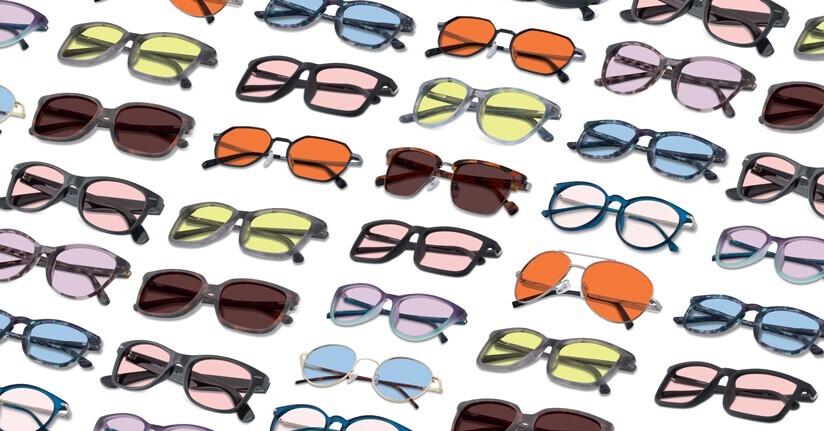The Fear of Thinking Too Hard and Its Effect on Migraine (Cogniphobia)
The prospect of exerting significant mental energy toward any task can be enough to cause anxiety for someone with migraine. But it can cause so much fear that they would rather avoid it than risk the possibility of triggering an attack. Medical researchers have given a name to this fear or avoidance of thought, cogniphobia, and they are now aiming to better evaluate its effect on those with headache disorders. We take a closer look at this phenomenon.
What is cogniphobia?
Cogniphobia reflects a conscious decision to “avoid cognitive tasks (by putting forth less effort)” in an attempt to prevent a migraine attack from happening or to minimize existing symptoms.1 For example, a person might intentionally refrain from working on a particularly intensive project or avoid interactions or situations that require enhanced attention and thought. Cogniphobia is believed to be high in individuals with chronic headache conditions due to greater anxiety and stress that can come with the condition; in fact, a recent study showed a correlation between the severity of headaches and higher levels of cogniphobia for patients with mild traumatic brain injury and concussion.2 The same research also indicated that patients were more likely to avoid physical activities and stress-related triggers as well.
Fear of an impending attack can be especially prominent during pain-free periods. This not only could lead to the avoidance of behaviors that require mental exertion, but it has also been linked to medication overuse headache—a phenomenon that some researchers have termed cephalgiaphobia. In effect, patients worry over the next attack and, as a result, use migraine preventatives when symptoms are not present. This can have the opposite effect from its intention by actually hastening another episode. In addition to the potential physical consequences from this fear, it also has been shown to have negative effects on the personal and professional lives of those with migraine.3
Are there other cognitive issues related migraine?
Many migraineurs often report symptoms like brain fog, inability to concentrate, and memory issues during any stage of an attack. Longitudinal studies that have explored the topic of cognitive dysfunction—or decline in mental ability and sharpness—in people with migraine, but they have been both inconsistent in their findings and limited in their design. In addition, there has been a link between increasing stress and the onset of a migraine attack4 5 which could also be the result of biochemical reactions in the body to those stressors. Ironically, a reduction in stress6 can also be a trigger.
Further examinations have shown that anxiety and panic disorders may also be higher in individuals with migraine,7 but it is unclear if there is direct causality. Some researchers have suggested that there is a “fear avoidance cycle” on the part of migraine patients—resulting in an unhealthy focus on pain—which could both play a role in migraine-related depression, anxiety and disability. These may also exacerbate individual attacks as well.
What it means for you
The topic of cogniphobia is still a relatively new area of research. More in-depth studies are needed on the topic to isolate its consequences on people with migraine. We are however encouraged to see that researchers recently developed a cogniphobia scale for headache disorders, which will hopefully help better identify and understand its impact on patients. This could further lead to comprehensive strategies for dealing with it.
In the meantime, it is still important to remain vigilant and aware of one’s own migraine triggers. This can help you identify non-pharmaceutical options that could prevent attacks from happening. For instance, if light acts as a trigger, TheraSpecs indoor migraine glasses and outdoor migraine sunglasses can help filter out the harmful wavelengths to keep you protected. But as we have seen, it is also vital to find ways to mitigate feelings of stress, anxiety, and avoidance at all stages of a migraine episode; cogniphobia and related behaviors can be detrimental to your health and even lead to more attacks. This could have a ripple effect on other areas of your life as well.
Sources:
1Suhr J, Spickard B. Pain-related fear is associated with cognitive task avoidance: exploration of the cogniphobia construct in a recurrent headache sample. Clin Neuropsychol. 2012;26(7):1128-41. doi: 10.1080/13854046.2012.713121. Epub 2012 Aug 28.
2Silverberg N, Iverson G, Panenka W. Cogniphobia in Mild Traumatic Brain Injury Journal of Neurotrauma. February 2017, ahead of print. doi:10.1089/neu.2016.4719.
3Freitag, F. The cycle of migraine: Patients' quality of life during and between migraine attacks. Clinical Therapeutics. Volume 29, Issue 5, May 2007, Pages 939-949.
4Sauro KM, Becker WJ. The stress and migraine interaction. Headache. 2009 Oct;49(9):1378-86. doi: 10.1111/j.1526-4610.2009.01486.x. Epub 2009 Jul 8.
5Wacogne C, Lacoste JP, Guillibert E, Hugues FC, Le Jeunne C. Stress, anxiety, depression and migraine. Cephalalgia. 2003 Jul;23(6):451-5.
6Lipton, R. B., Buse, D. C., Hall, C. B., Tennen, H., DeFreitas, T. A., Borkowski, T. M., … Haut, S. R. (2014). Reduction in perceived stress as a migraine trigger: Testing the “let-down headache” hypothesis. Neurology, 82(16), 1395–1401. doi:10.1212/WNL.0000000000000332.
7Wang, S.-J., Chen, P.-K., & Fuh, J.-L. (2010). Comorbidities of Migraine. Frontiers in Neurology, 1, 16. doi:10.3389/fneur.2010.00016.

TheraSpecs® Glasses for Light Sensitivity
Find the glasses that fit your needs and lifestyle, and stay protected from screens, fluorescents, unwanted blue light, sunlight, flashing lights, and more.
Shop Now



